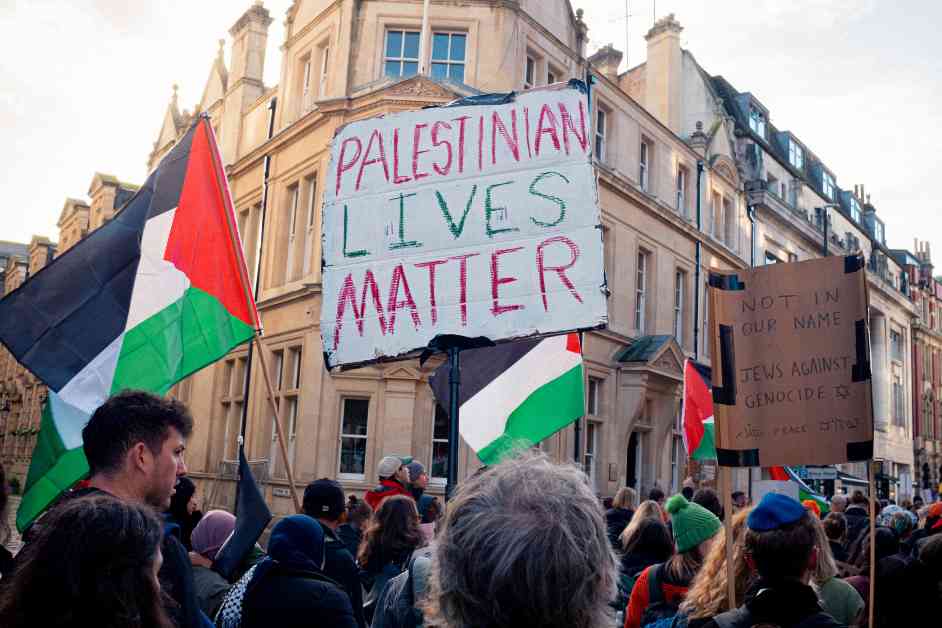Pro-Palestine student encampments have been gaining momentum worldwide, with students in the US leading the way earlier this year. In Britain, including Bristol, students have been setting up tents on university greens and public spaces to protest against academic institutions investing in companies complicit in Israel’s actions in Gaza. These encampments have become a powerful symbol of solidarity and resistance, with students committed to staying put until their demands are met.
The issue at hand is the divestment of funds from companies that support Israel’s actions in Gaza. British universities have been shown to have significant investments in companies that have ties to Israel, amounting to nearly £4.3 billion. Despite this, universities have denied any direct links to the regime in Israel, prompting students to take matters into their own hands through peaceful protest.
One such encampment was set up at the University of Bristol’s Royal Fort Gardens, where students vowed to remain until the university ceased its complicity. The university attempted to remove the protesters, even taking legal action, but the students stood their ground for two months before the university eventually backed down. This show of resilience and determination has sparked conversations about the impact of student activism and the power of collective action.
In a recent podcast series titled “People Just Do Something,” reporters Priyanka and Isaac sat down with Daniel Green from the Palestine encampment at Cardiff University to discuss the process of organizing such protests. Green highlighted the importance of strategy, safeguarding, and communication in ensuring the success and sustainability of student encampments. Despite facing challenges such as inclement weather and logistical issues, the support from the wider community in the form of donations and resources has been instrumental in keeping the protest going.
One of the main demands of the Cardiff protesters was divestment, with Green pointing out that the university had substantial investments in arms companies. Like many other institutions, Cardiff has been evasive in taking responsibility for these investments, citing indirect connections. This has prompted students to push harder for transparency and accountability within their universities, challenging the status quo and demanding change.
Moving forward, protesters must find ways to cut through bureaucratic red tape and continue making an impact. By staying united and focused on their goals, student activists can keep the momentum going and push for meaningful change within their academic institutions. The power of collective action and grassroots movements cannot be underestimated, as seen in the success of student encampments across the UK.
The podcast series “People Just Do Something” will continue to explore the stories and experiences of student activists, shedding light on the challenges and triumphs of their efforts. By sharing these narratives, the series aims to inspire others to take action and stand up for causes they believe in, fostering a sense of community and solidarity among like-minded individuals.
As investigative journalism plays a crucial role in holding institutions accountable and amplifying the voices of marginalized communities, it is essential to support independent newsrooms like The Cable. With a commitment to producing award-winning journalism that delves deep into local issues, The Cable relies on the support of its members to continue its mission of promoting transparency and accountability in Bristol.
In conclusion, the student encampments in support of Palestine have sparked a wave of activism and solidarity across British universities. By standing up against complicity and demanding divestment, students are challenging the status quo and advocating for a more just and ethical approach to investment practices. Through collective action and perseverance, these encampments are sending a powerful message that cannot be ignored.













